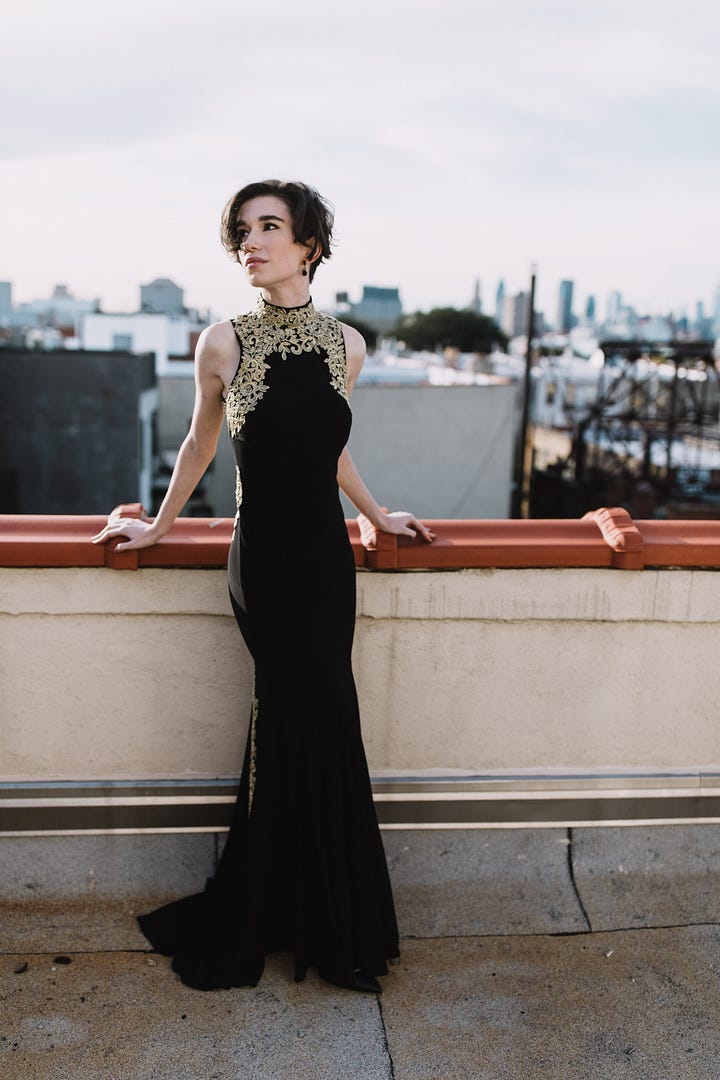For those of you who know me on a personal level, I often joke about not wanting to be perceived. We also know that there is no such thing as a joke without some truth behind it, at least in sentiment. But how does someone who is an opera singer want not to be seen? I might be calling BS on myself… Opera is loud and raw and dramatic and full of camp. It is practically the definition of being seen (and heard).
Post-show is always very uncomfortable for me. It’s not because the performance came to an end. It’s the mingling. Oh my God, the post-show mingling is something that transforms me into a puddle of cold sweat. I am happy to seize my moment on stage, but afterward, I feel this deep temptation to morph into a turtle retreating into its shell, as if I fulfilled my “being seen” quota for the day.
As much as being a live performer takes tremendous vulnerability, I find safety in it. For me, the stage is a safe space. It’s a place for exploration. And for the most part, the audience wants to be present with you as you, the artist, or your character explores every facet of humanity. I step in and out of costume and can tell all “pay no attention to that meltdown you just saw me have on stage, that was just acting.” It’s all fun and games to throw food and stomp around on stage having the most gut-wrenching mental breakdown anyone has seen, but when I do that for real on the B train “I’m causing a scene which results in me going viral on a ‘What is New York,’ social media platform.” Go figure.
Onstage, there is no judgment. It’s an invitation to explore taboo feelings of pain, pleasure, and dysfunction under the guise of someone else. Although I play various roles on the stage, I never do so without bringing a part of me into it, regardless of how different that character is. So here I am exposing myself (and likely many of the artists reading this as well.)
Alexa day to day is responsible and restrained, but Alexa in character can violently mess up without any consequences. Alexa, day-to-day is filled with jokes and quirks, but Alexa on stage is elegant and grounded. Alexa day to day is small-framed, and soft-spoken with bouts of tendinitis, but Alexa on stage is ferocious and mighty. Alexa day to day doesn’t want attention, but Alexa on stage commands it all.
Yet I am all of these things simultaneously and often perceived as such.
So although I joke about not wanting to be perceived, I deeply desire the opposite. If you’ve been to a performance of mine, thank you for seeing me. If you are a friend or a loved one, thank you for seeing me.
And if you made it to the end of this brief, yet vulnerable post, thank you for perceiving me.






